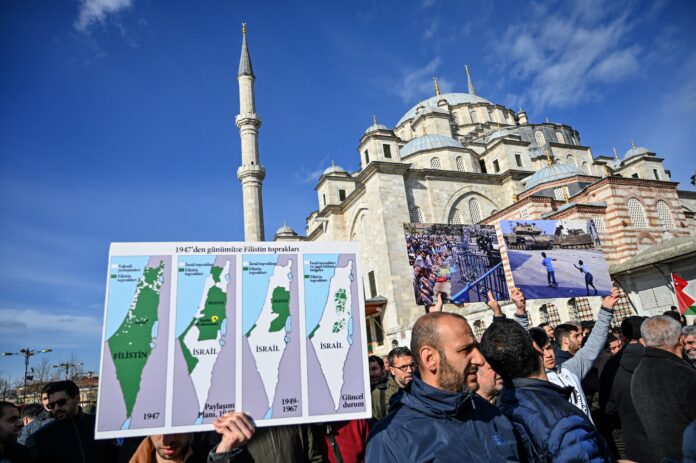Author: Yossi Melman
Affiliation: Haaretz
Organization/Publisher: Middle East Eye
Date/Place: June 26, 2020/ London, UK
Type of Literature: Analysis
Word Count:1270
Link:https://www.middleeasteye.net/news/how-israel-began-seeing-turkey-threat-instead-partner
Keywords: Israel, Turkey, Middle East, Defense, Security, Strategic Partners
Brief:
Yossi Melman, in his article, introduces the Israeli view of Turkey and its movements in the region from the Mediterranean to the Red Sea and Indian Ocean. He underlines the increased Israeli worry about “Turkey’s expanded encroachment.” Although the economic partnership has improved in the last seven years, intelligence and security relations have remarkably deteriorated. In contrast to a history of strategic partnership between the two countries for almost 50 years with notable intelligence and military coordination, during the last decade Erdogan has mainly detached his country from Israel. Turkey has constructed its existence and influence in many countries in the region including Syria, Iraq, the Gaza Strip, occupied East Jerusalem, Libya, Yemen, etc. In Yemen, the Turkish Intelligence Agency (MIT) has developed strong connections with Islah party, which is following the ideology of the Muslim Brotherhood. Moreover, there are many efforts by the IHH in humanitarian relief. Regarding Palestine, Israel worries about the close connection with the Hamas’s military wing, along with the role of TIKA aid and support. Israel believes that under the umbrella of cultural and humanitarian coverage, Turkey seeks to spread the ideology of the Muslim Brotherhood and Erdogan’s ambition to restore the Ottoman Empire. The Kurdish cause is another critical point in the equation as it comes under the Israeli strategic concept of “Peripheral Alliance” referring to the building of alliances between Israel and ethnic and religious minorities in the Middle East’s “Arab-Muslim countries.” Recently, Libya has risen to the top of the Israeli interests for four reasons: its Mediterranean location, its neighboring with strategic energy partner Egypt, its threat to be an exporting source of terrorists to Sinai and Hamas in Gaza, as well as other strategic and economic motives especially the EastMed agreement between Israel, Cyprus and Greece to construct a gas pipeline that transmits gas to Europe. Accordingly, Turkey’s intervention in Libya blocks such an agreement especially with the signing of “a maritime delimitation agreement” between Turkey and the GNA. To conclude, Israel will not seek a confrontation with Turkey even if opposing its intervention in Libya. Though the two countries show such rivalry and hostility, they keep some “back channels” open.
By: Yomna Süleyman, CIGA Research Assistant




